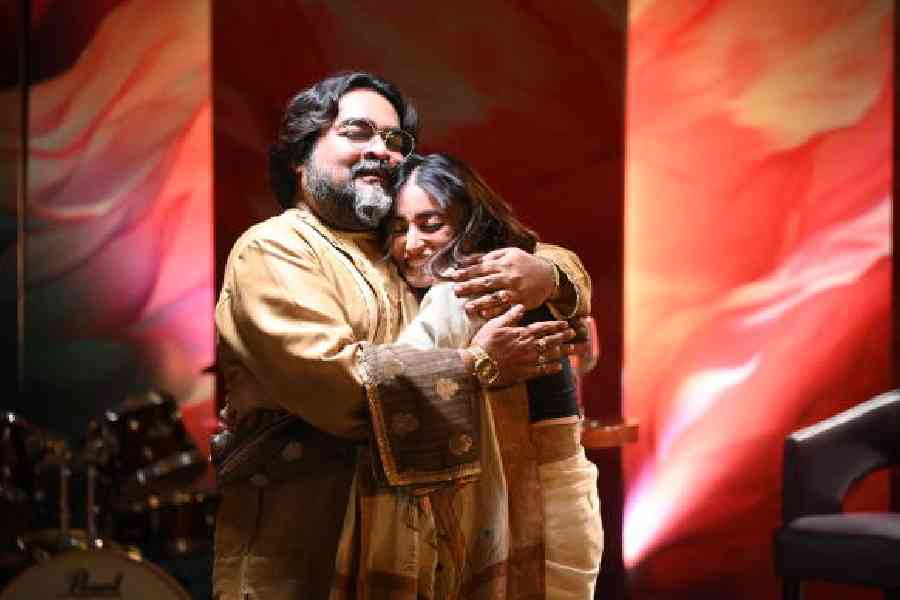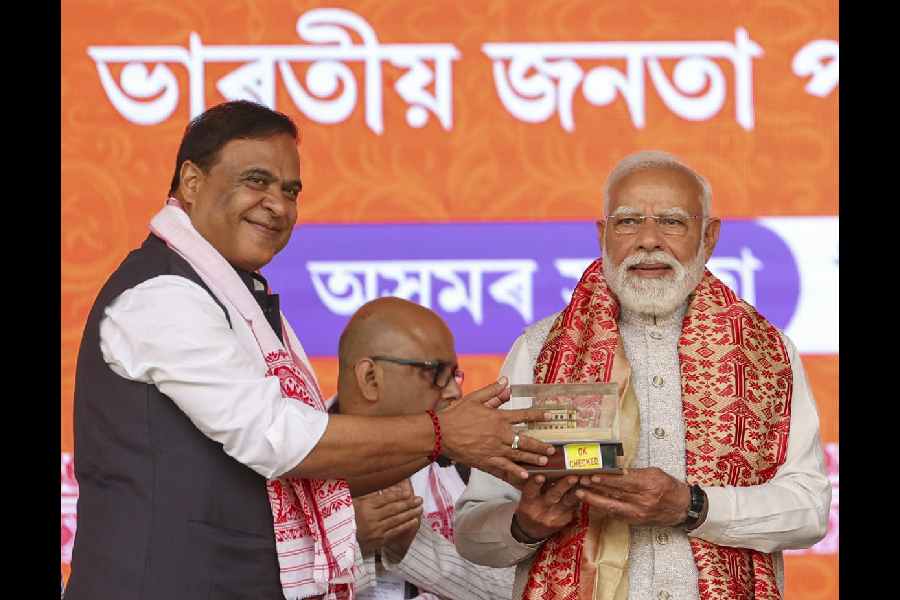At a time when we’re usually choosing to watch cinema that’s intense, emotionally layered, and thematically heavy, Check In Cheque Out (directed by Satrajit Sen) arrives as a contrast. It’s a film that doesn’t demand reflection or emotional labour; it simply invites you to sit back, chuckle, and leave with a light heart. A reminder of the time when being entertained and amused through cinema was enough. Check In Cheque Out is a delightful dose of laughter which is light-hearted, unpretentious, and breezy. What stands out most are the performances, which hit the mark particularly in scenes that spark genuine, involuntary laughter.
The story is about Namrata Mitra, who inherits the once-renowned Mitra hotel chain, founded by her grandfather, Girindra Mohan Mitra. Bound by his rule to serve as general manager at the Calcutta branch for a year, Namrata plans to sell the failing hotel. But her intentions awaken the ghost of her grandfather, who’s determined to protect his legacy. As they clash, an unexpected bond forms, and he sets a final condition: if Namrata can meaningfully impact the lives of a few guests, she’ll earn the right to decide the hotel’s fate.
The story unfolds in the drama and the commotion that follows as she executes the plan that could seal the fate of the hotel and by default the future of the guests. Check In Cheque Out has its share of absurdity; absurdity, when handled rightly, has always been an interesting tool in both literature and theatre. Think of plays by Samuel Beckett (Waiting for Godot) or films by Charlie Chaplin where strange, unexpected, or silly situations actually reveal something deeper about human nature. The director does use absurdity to the film’s advantage in most parts, drawing humour from the bizarre while it holds its human quality, where you feel the emptiness, brokenness and the resilient spirit of the characters.
The film may not boast of the most airtight script or screenplay, and there are a few occasional dips that affect the overall flow. However, the director’s ability to draw out comic timing and endearing performances does compensate and make it watchable and often, quite lovable.
Ratul Shankar, as the ghost of Girindra Mohan Mitra, is both entertaining and endearing. His performance is effortlessly funny, and his presence brings an old-school charm that calls to mind the comic genius of Utpal Dutt. He never pushes too hard; his timing is intuitive, and his delivery is absolutely natural. His scenes with his granddaughter, played by Ishaa Shah as Namrata Mitra, are some of the most enjoyable scenes in the film. This very chemistry is marked by friction, affection, and warmth, all wrapped in comedy that never tries too hard.
Ishaa Shah brings sincerity to her role. Her effort shines through, particularly in key scenes, and with this film, she proves yet again that the camera loves her. There’s an unmistakable honesty in her performance, although one is left feeling the honesty could have been more consistent throughout the film. Meghdut RoyChowdhury as Robin Dutta seems at ease in his character and delivers a fairly effective performance. Chandreyee Ghosh as Kobita leaves a distinct impression with her measured portrayal. Ayan Nandi, Anuradha Mukherjee, Aryann Bhowmik and Soumya Majumdar perform their parts with conviction. One only wishes they had been given a little more room to explore and expand their characters.
The music adds an element of charm and character to the film. The songs are thoughtfully placed, especially Bohu durey, sung by Aditya Kalway and Malini Banerjee, and composed by Shayon and written by Ritwik Sinha. It tends to linger on even after the credits roll. The film may not be ‘perfect’... however, the director does deserve credit for taking a creative leap and crafting a comedy that resists formula and embraces quirk. For those open to laughter, lightness and to stories that don’t ask for too much but give you a good time anyway, this one is worth checking into.










